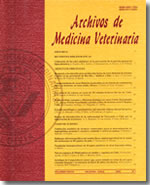Ecology of emerging infectious diseases and wild species conservation
Main Article Content
Abstract
Recent literature on emerging infectious diseases in wild species raises international concerns about ocean, terrestrial and freshwater ecosystem health. Reports documenting infectious diseases in wild species from the last 25 years were investigated. The goals of the study were to: 1) assess the importance of habitat and alien species introduction, within the context of pollution and weather change, on emerging infectious diseases, and 2) evaluate the risk of extinction for species of conservation concern. Assessment of several important cases reveals that pathogens responsible for infectious diseases in wild species can be readily transmitted between hosts, leading to short-term epizootic infections that can threaten vulnerable declining populations. Habitat destruction and the introduction of alien species were identified as significant environmental variables that affect the ecology of emerging infectious diseases, while pollution and weather change were found to favor transmission and the creation of new hosts. A transdisciplinary approach is required to confront the multi-causal origin of these diseases. The growing risk of epizootics caused by habitat destruction, pollution and invasive alien species reveals the importance of considering infectious disease ecology in our wild species conservation efforts.

